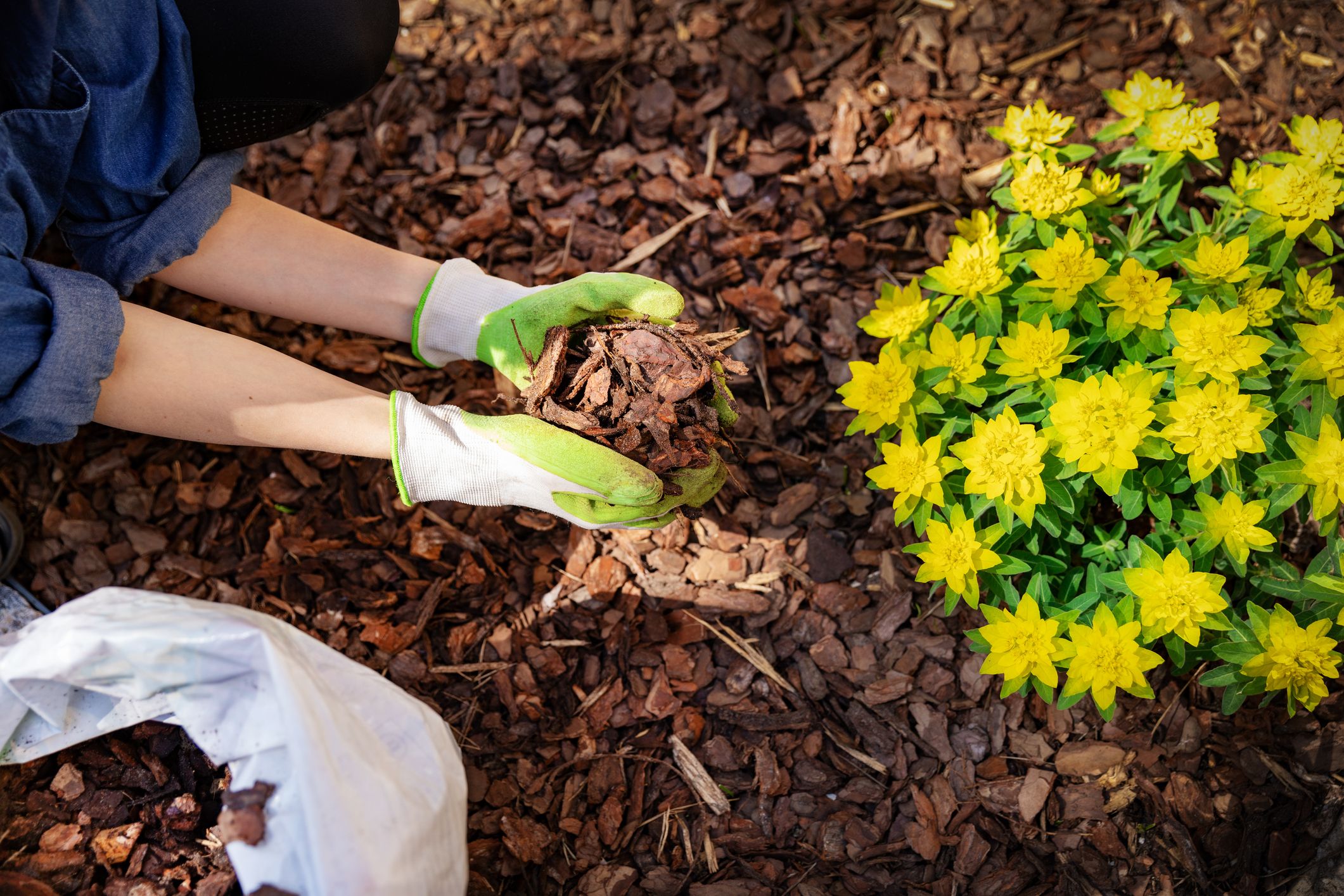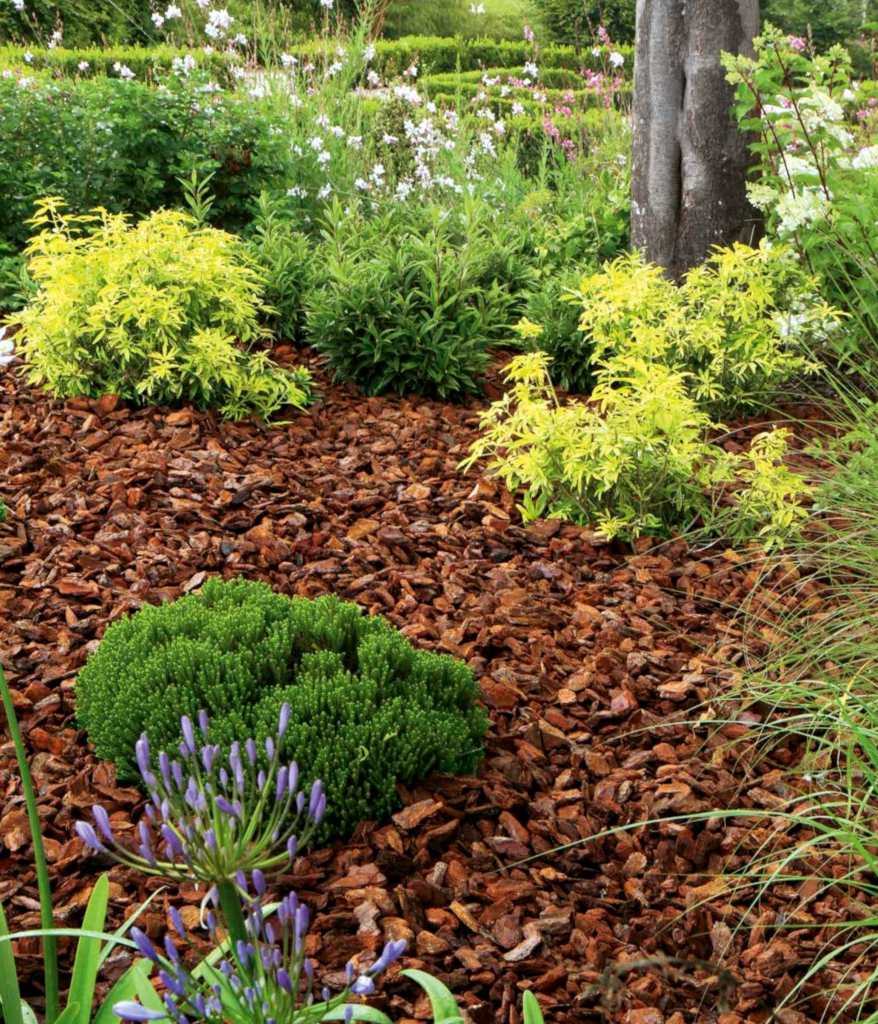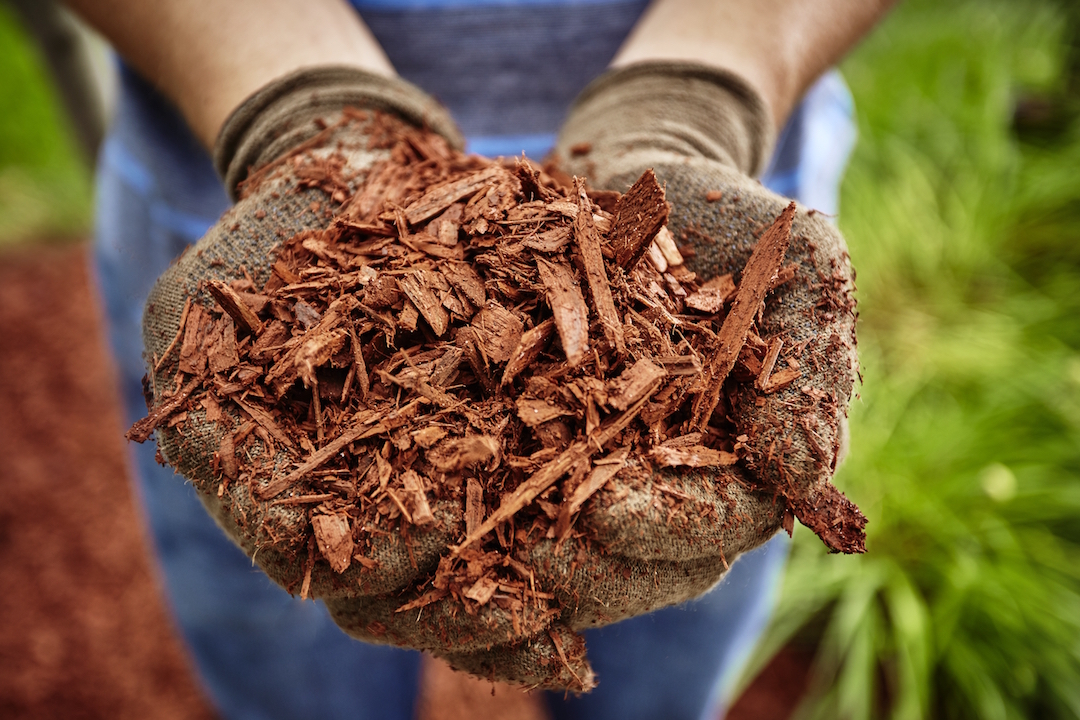
Any form of natural material that is laid on top of the soil surface of your garden beds is considered organic mulch. Mulching your garden not only keeps weeds at bay, but it also reduces soil erosion and regulates soil temperature changes.
How to Mulch Your Garden?
Begin with a weed-free, well-watered garden bed. Apply a good 4-6 inch layer of organic mulch of your choosing after planting. If you’re using soaker hoses, start with the hoses and then add the mulch. To avoid suffocation, keep the mulch a few inches away from the plants. Water thoroughly to settle the mulch and keep it from washing away. Remove weeds that have sprouted on a regular basis to prevent them from becoming seeds. During the growing season, if needed, add more mulch.
Allow the ground to soften. Rake the mulch aside, tidy the garden, add a layer of completed compost, and lightly cover the beds with the old mulch at the end of the growing season. Lightly covering beds helps to reduce weeds while also protecting the soil without insulating the beds. In the winter, you want the earth to freeze, and in the spring, you want it to warm up. In the dead of winter, many fungal diseases and pests are eradicated. Overly mulched beds could be layered to keep the soil from freezing and provide a warm, inviting environment for pests to overwinter.
When perennials are idle, mulch them. After the earth has frozen and the plants have gone dormant, cover the garlic and perennial herbs with a thick layer of mulch. Before the earth freezes, cover it with a heavy layer of mulch to insulate it and postpone the plants’ natural dormancy. When a harsh winter arrives, this might cause harm to the roots. After the earth freezes, mulching will assist to regulate temperature changes and prevent the soil from freezing and thawing, which could cause plant roots to lift out of the ground. Remove some of the mulch as the soil thaws in the spring to allow it to warm up.
In the spring, rake the mulch away to let the beds to warm up. When April arrives, the beds will be ready to plant. Simply sweep the mulch aside, pull any weeds that have sprouted, and plant the seeds or seedlings in the earth. Add more mulch to the garden beds once the plants have established themselves, keeping it a few inches away from the stems.
Mulching your garden has shown to eliminate weeds and increase soil quality over time. The use of mulch did not totally eliminate weeds, but it did lower their number in the garden. The ones that did grow were far more manageable. As you continued to apply mulch to the garden each year, the amount of weeds in the garden dropped. When the mulch split, it provided my sandy soil with much-needed organic matter. Instead of digging the weeds every weekend, pass them one at a time.

Types of Organic Mulch for The Garden:
- Wood chips or shredded leaves
- Grass clippings
- Compost
- Straw or hay
5 Benefits of Organic Mulch in the Garden

Mulch is any material that is put on top of the soil’s surface. Covering your garden beds not only keeps weeds at bay, but it also reduces soil erosion and regulates soil temperature changes. Water, air, and nutrients can all penetrate into the soil, but mulch keeps moisture from evaporating and keeps roots cool by shading the soil surface. Organic mulches decompose over time, enriching the soil as they do so.
1. Mulch Kills Weeds:
A thick layer of mulch will provide shade to the soil, preventing weed seeds from germinating and growing. Seeds dropped by birds or the wind are also prevented from coming into touch with the soil surface and taking root when the ground is covered.
2. Mulch Conserves Soil Moisture:
Mulch protects the soil surface from the effects of moisture from heat, sun, and wind, allowing it to retain moisture. Reduced evaporation allows plants to have more regular moisture levels, which improves their overall health. Leaf mould, for example, absorbs and retains moisture far better than bare soil.
3. Prevents Soil Erosion:
Mulch shields the soil surface from the erosive effects of the wind and rain. Mulch reduces the impact of rain and aids in the prevention of soil erosion. The earth is also shielded from the wind, which blows dirt particles away.
4. Covering the Ground Keeps it Cool:
Insulate the soil from the sun and summer heat by covering it with shade mulch. This keeps the soil cold and minimises temperature variations that can harm your plants.
5. Add Nutrients and Organic Mulch:
The mulch gives nutrients and humus to the soil as it decomposes, enhancing the soil’s structure, nutrition, and moisture-holding ability. Mulch offers food for earthworms, encourages microbial activity, and stimulates beneficial species in the soil as it decomposes.






